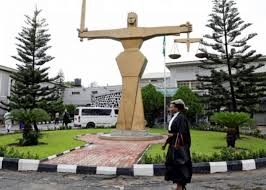A Federal High Court in Lagos has ordered the Yaba College of Technology (YABATECH) to pay Ms Blessing Oladunjoye, an award-winning journalist and publisher of BONews Service, the sum of N300,000 as exemplary and aggravated damages due to the institution’s blatant and illegal violation of her right to information.
Additionally, the court instructed YABATECH to provide her with all the information she had initially requested.
Describing the information sought from YABATECH by Ms Oladunjoye as being of “public interest”, Justice Daniel Emeka Osiagor stressed that compliance with the Freedom of Information (FOI) Act is mandatory in enhancing transparency and accountability in the public sector.
Justice Osiagor held in his judgment in the suit filed by Ms Oladunjoye against YABATECH and its Rector that the failure or refusal by the institution to grant her access to the information she requested by her letter dated October 26, 2020 was a violation of her right of access to information established and guaranteed by Sections 1(1) and 4 of the FOI Act.
Mr. Owolabi Dawodu, a Lagos-based lawyer and member of Media Rights Agenda’s network of lawyers, filed the suit on behalf of Ms Oladunjoye on March 1, 2022, against YABATECH and the rector of the institution, asking the court to declare that the failure and/or refusal by the institution to grant Ms Oladunjoye access to the information requested in her letter dated October 26, 2020 is a violation of her right of access to information established and guaranteed by Sections 1(1) and 4 of the FOI Act.
She also asked the court for an order compelling YABATECH to disclose or make available to her the information, which she had requested in her letter, namely: Copies of all data protection policies of YABATECH, issued in conformity with the NDPR; The name and contact details of the Data Protection Officer of YABATECH, designated in accordance with the NDPR, together with the institution’s relevant data privacy instruments and data protection directives;
Details of all capacity building training or other capacity building activities undertaken for the Data Protection Officer of YABATECH and other personnel of the institution involved in any form of data processing since the issuance of the NDPR; The number of persons or individuals whose personal data YABATECH processes on an annual basis, that is over a period of 12 months. A report from a detailed audit conducted by YABATECH of its privacy and data protection practices in accordance with the NDPR.
Other reliefs sought by Ms Oladunjoye included an order directing YABATECH and its rector to pay to her the sum of N1 million as exemplary and aggravated damages for the flagrant and unlawful violation of her right of access to information and the wrongful denial of the information to her.
In his judgment, Justice Osiagor disagreed with YABATECH that the information requested by Ms Oladunjoye fell within the exemptions provided in Section 15(1) of the FOI Act, describing as “very strange” the institutions interpretation that the information she asked for amounted to trade secrets, financial information or personal information on third parties.
Detailing all the information requested by Ms Oladunjoye in her letter to YABATECH, he asked “is this information categorized as personal data that ought to be protected?”
The judge quoted copiously from the FOI Act and also referred to the National Information Technology Development Agency (NITDA) Act of 2007 and noted that NITDA “is mandated by the Act to develop regulations for electronic communication that may improve the exchange of data and information as an alternative to paper-based methods in government.”
According to him, in January 2019, the Director-General of NITDA signed the NDPR under the NITDA Act, Section 4.1(1) of which provides “all public and private organizations in Nigeria that control data of natural persons shall within three months after the date of the issuance of the Regulations make available to the general public their respective data protection policies, these policies shall conform with the regulations”.
Justice Osiagor observed that under these Regulations combined with the FOI Act, Ms Oladunjoye wrote to YABATECH on October 26, 2020 demanding to know about their data policies but received no response.
He said YABATECH’s refusal to comply with the FOI Act and the NITDA Regulations 2019 hinged on the information requested by Ms Oladunjoye consisting mostly of trade secrets and commercial or financial information obtained from third parties based on its claim that the journalist sought “personal information of persons and/or third parties.”
Reproducing Ms Oladunjoye’s request letter in full, the judge said: “this information in the main seeks to know the state of compliance by the Respondents in the education sector in complying with the NITDA Regulations and thus enhancing migration from paper-based to paperless correspondence in governance as the preamble to the Regulation demand.”
He stressed that “These demands are of public interest as compliance with the Freedom of Information Act concerning the Data Protection Regulation, 2019 is made mandatory in enhancing transparency and accountability in the public sector.”
Justice Osiagor noted that the information requested by Ms Oladunjoye fit into the records that all public institutions are required to keep about their activities, operations and businesses under Section 2(1) of the FOI Act and are thus not the personal data of third parties as argued by YABATECH.
The judge concluded that the demands made by Ms Oladunjoye were of public interest and aligned with the transparency and accountability goals of the FOI Act. As a result, he granted all the reliefs sought by her, except for reducing the damages claimed to N300,000.”

